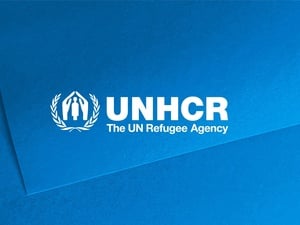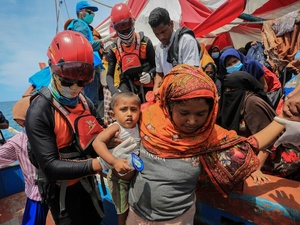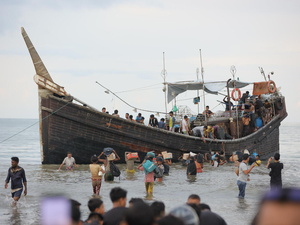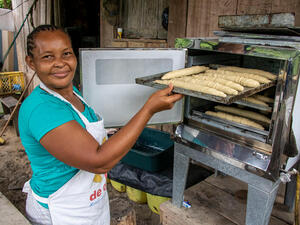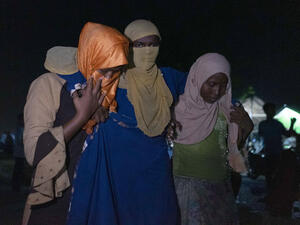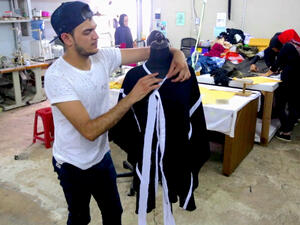Papua New Guinea: complex voluntary relocation move successfully completed
Papua New Guinea: complex voluntary relocation move successfully completed
The first stage of the voluntary relocation of a group of 185 West Papuan refugees from Vanimo (Sandaun Province) to East Awin (Western Province) was completed late yesterday.
Due to the rough terrain of Papua New Guinea (PNG) and the absence of established road networks, the refugees were moved to the remote mining town of Kiunga in five groups by a PNG Airlines plane chartered by UNHCR. They will spend a short time in a transfer shelter in Kiunga before being moved in groups of 40 by boat to Rampsite, about one hour upstream on the Fly River. From there, the small groups will travel by tractor the 46 kilometres to East Awin.
UNHCR's PNG Representative, Mr Johann Siffointe, said the complex move was a significant achievement and could become a model for voluntary relocations around the world.
Preparations for the move began in earnest last in May, following a breakthrough in negotiations with the traditional landowners regarding the allocation of land for the group to build houses and establish gardens. Even with the relatively small population, the land tenure system in PNG is complex and land is always in short supply.
Siffointe praised the PNG government for its commitment to achieving a negotiated outcome with the Vanimo group, who were initially reluctant to move to the remote area of East Awin.
The refugees were among 460 people who arrived in the border town of Vanimo from the Papua Province of Indonesia in December 2000. They were mainly from Wamena and Jayapura and were among several movements of pro-independence refugees from Papua Province since the late 1960s. More than half have since moved back across the border, leaving the population relocated this week at 185 people, including 52 women, 54 men and 77 children - the youngest being only 2 months old travelling in her mother's bilum.
In East Awin, the UNHCR is providing food, tarpaulins, nails, saws, spades, bush knives, lamps, jerry cans, soap and mosquito nets to the refugees.
In 1987, the PNG government designated East Awin as a relocation area for refugees and asylum seekers, and has leased 6,000 hectares from the traditional landowners. There are 2,500 refugees from Papua Province, Indonesia, already settled there, including 1,200 children who were born in East Awin.


